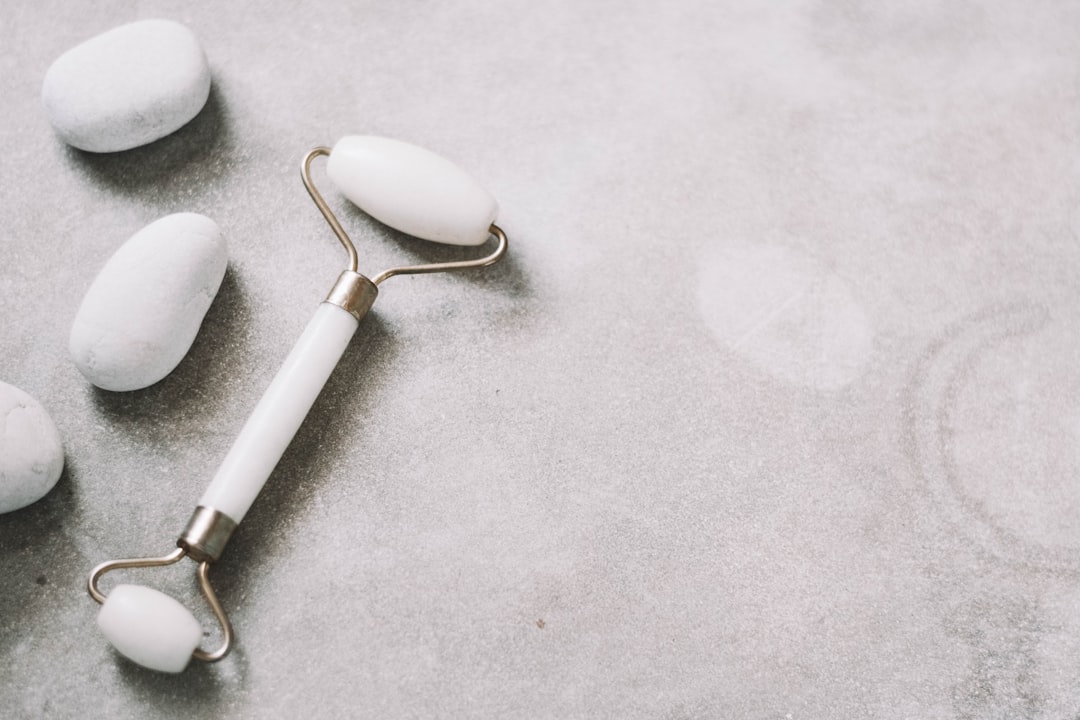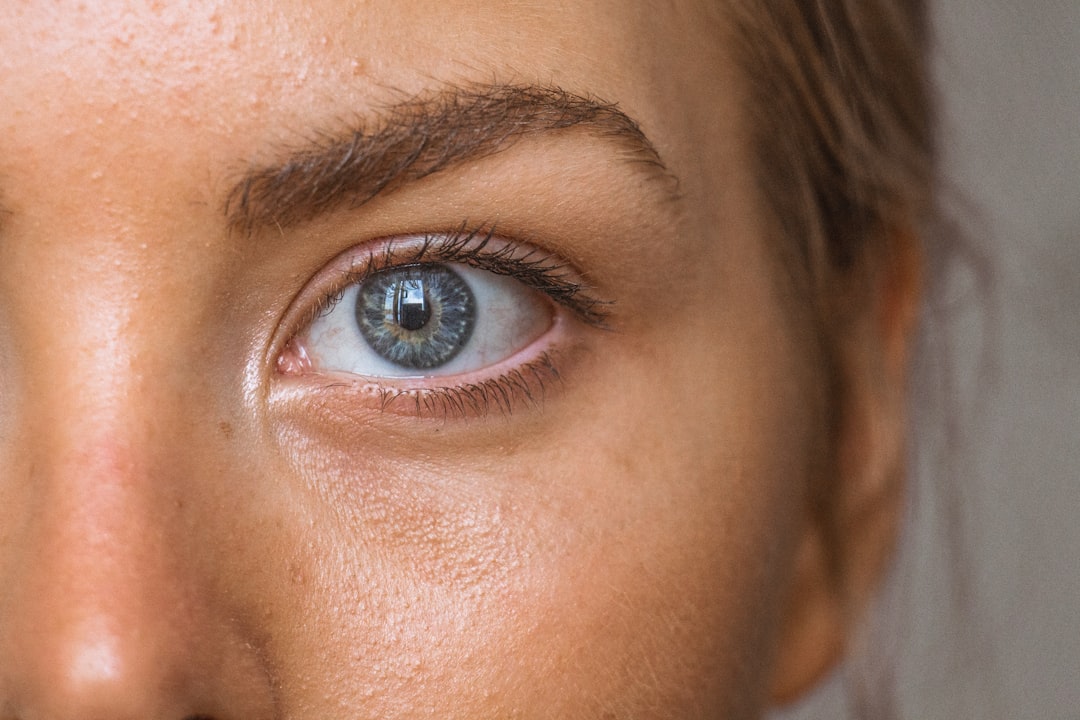Understanding your skin type is the first step in establishing an effective skincare routine. There are generally four main skin types: normal, oily, dry, and combination. Normal skin is well-balanced, with small pores and few imperfections. Oily skin tends to produce excess sebum, leading to a shiny complexion and potential acne breakouts. Dry skin lacks moisture, often feeling tight and flaky, while combination skin features both oily and dry areas.
It’s important to identify your skin type in order to choose the right products that will address your specific needs. For example, those with oily skin may benefit from oil-free cleansers and lightweight moisturisers, while individuals with dry skin may require richer, more hydrating products. By understanding your skin type, you can tailor your skincare routine to effectively address any concerns and maintain a healthy complexion.
Understanding your skin type is crucial for developing a skincare routine that works for you. Whether you have normal, oily, dry, or combination skin, it’s important to choose products that cater to your specific needs. By doing so, you can ensure that your skin receives the care and attention it requires to stay healthy and radiant.
Summary
- Understanding your skin type is crucial for choosing the right skincare products and treatments.
- Cleansing and exfoliating regularly helps to remove impurities and dead skin cells, promoting a healthy complexion.
- Choosing the right moisturiser for your skin type is essential for maintaining hydration and preventing dryness or oiliness.
- Incorporating serums and treatments targeted towards your specific skin concerns can help to improve overall skin health.
- Sun protection and antioxidants are important for protecting the skin from UV damage and environmental stressors.
Cleansing and Exfoliating
Cleansing and exfoliating are essential steps in any skincare routine. Cleansing helps to remove dirt, oil, and impurities from the skin’s surface, while exfoliating helps to slough off dead skin cells, promoting a brighter complexion. When choosing a cleanser, it’s important to consider your skin type. Those with oily skin may benefit from a foaming or gel-based cleanser to help control excess oil, while individuals with dry skin may prefer a cream or lotion cleanser to prevent further dehydration.
Exfoliating can be done using physical or chemical exfoliants. Physical exfoliants, such as scrubs or brushes, work by physically removing dead skin cells, while chemical exfoliants, like alpha hydroxy acids (AHAs) or beta hydroxy acids (BHAs), work by dissolving the bonds between skin cells. It’s important to exfoliate gently and not overdo it, as excessive exfoliation can lead to irritation and sensitivity.
Incorporating both cleansing and exfoliating into your skincare routine can help to keep your skin clean and smooth. By choosing the right products for your skin type and exfoliating in moderation, you can maintain a healthy and glowing complexion.
Choosing the Right Moisturiser
Choosing the right moisturiser is crucial for maintaining hydrated and healthy skin. Moisturisers help to lock in moisture, prevent water loss, and protect the skin’s barrier. When selecting a moisturiser, it’s important to consider your skin type and any specific concerns you may have. For example, those with oily skin may benefit from a lightweight, oil-free moisturiser, while individuals with dry skin may require a richer, more emollient formula.
In addition to considering your skin type, it’s also important to look for moisturisers that contain beneficial ingredients such as hyaluronic acid for hydration, ceramides for barrier repair, and antioxidants for protection against environmental damage. These ingredients can help to address specific concerns and improve the overall health of your skin.
By choosing the right moisturiser for your skin type and incorporating beneficial ingredients, you can ensure that your skin remains hydrated, protected, and nourished. A well-chosen moisturiser can make a significant difference in the appearance and feel of your skin.
Incorporating Serums and Treatments
Serums and treatments are potent products that can target specific skincare concerns such as ageing, hyperpigmentation, or acne. Serums are lightweight, fast-absorbing liquids that contain high concentrations of active ingredients such as vitamins, antioxidants, or peptides. Treatments, on the other hand, are more intensive products that are designed to address specific issues such as fine lines, dark spots, or blemishes.
When incorporating serums and treatments into your skincare routine, it’s important to consider your individual concerns and goals. For example, if you’re looking to address signs of ageing, you may want to use a serum containing retinol or vitamin If you’re dealing with hyperpigmentation, a treatment containing ingredients like niacinamide or kojic acid may be beneficial.
By incorporating serums and treatments into your skincare routine, you can target specific concerns and improve the overall health and appearance of your skin. These potent products can provide added benefits that go beyond what a basic cleanser or moisturiser can offer.
Sun Protection and Antioxidants
Sun protection and antioxidants are essential components of a comprehensive skincare routine. Sunscreen helps to protect the skin from harmful UV rays that can cause premature ageing, sunburn, and even skin cancer. It’s important to choose a broad-spectrum sunscreen with an SPF of at least 30 and to apply it daily, even on cloudy days or during the winter months.
In addition to sunscreen, antioxidants play a crucial role in protecting the skin from environmental damage. Antioxidants such as vitamin C, vitamin E, and green tea extract help to neutralise free radicals that can lead to oxidative stress and premature ageing. By incorporating antioxidants into your skincare routine, you can help to defend your skin against the damaging effects of pollution, UV radiation, and other environmental aggressors.
By prioritising sun protection and incorporating antioxidants into your skincare routine, you can help to safeguard your skin from the harmful effects of the environment. These measures can not only protect your skin from damage but also contribute to a healthier and more youthful complexion in the long run.
Establishing a Consistent Routine
Establishing a consistent skincare routine is key to achieving healthy and radiant skin. Consistency is important because it allows your skin to adapt to the products you’re using and maximise their benefits over time. It’s important to cleanse, moisturise, apply treatments, and protect your skin from the sun on a daily basis in order to maintain its health and appearance.
In addition to being consistent with your skincare routine, it’s also important to be patient and give your products time to work. Skincare is not an overnight fix, and it can take weeks or even months to see significant improvements in your skin. By sticking to a consistent routine and giving your products time to deliver results, you can achieve the best possible outcomes for your skin.
By establishing a consistent skincare routine and being patient with the results, you can ensure that your skin receives the care it needs to stay healthy and beautiful. Consistency is key when it comes to skincare, so it’s important to stick with your routine in order to see the best possible results.
Seeking Professional Advice
Seeking professional advice is important for addressing any specific skincare concerns or issues you may have. A dermatologist or skincare professional can provide personalised recommendations based on your individual needs and goals. Whether you’re dealing with acne, rosacea, hyperpigmentation, or other concerns, seeking professional advice can help you develop an effective treatment plan.
In addition to seeking professional advice for specific concerns, regular check-ups with a dermatologist can also help to monitor the overall health of your skin. Skin cancer screenings and professional assessments can help to identify any potential issues early on and ensure that your skincare routine is optimised for your individual needs.
By seeking professional advice and guidance, you can ensure that you’re taking the best possible care of your skin. Whether you’re looking for targeted treatments or simply want to maintain the health of your skin, professional input can make a significant difference in achieving your skincare goals.
Discover the power of peptides in skincare with our related article on peptides in skincare. Learn how these powerful ingredients can unlock the benefits for youthful skin and complement your perfect skincare routine. Whether you’re looking to fade dark spots and hyperpigmentation or manage acne-prone skin, our comprehensive guide has you covered. Elevate your skincare game and achieve radiant, healthy skin with our expert tips and recommendations.
FAQs
What is a skincare routine?
A skincare routine is a series of steps and products used to take care of the skin on a regular basis. It typically includes cleansing, exfoliating, toning, moisturizing, and applying sunscreen.
Why is a skincare routine important?
A skincare routine is important for maintaining healthy and radiant skin. It helps to remove dirt, oil, and impurities, while also providing hydration and protection from environmental damage.
How do I determine my skin type?
There are four main skin types: normal, dry, oily, and combination. You can determine your skin type by observing how your skin feels throughout the day and after cleansing. Normal skin feels balanced, dry skin feels tight and flaky, oily skin feels greasy, and combination skin has areas of both dryness and oiliness.
What are the essential steps in a skincare routine?
The essential steps in a skincare routine include cleansing, exfoliating, toning, moisturizing, and applying sunscreen. These steps help to cleanse, nourish, and protect the skin.
How do I choose the right skincare products for my routine?
When choosing skincare products, it’s important to consider your skin type, concerns, and any specific ingredients that may irritate your skin. Look for products that are suitable for your skin type and address your specific skincare needs.
How often should I exfoliate in my skincare routine?
Exfoliation should be done 1-3 times per week, depending on your skin type and the type of exfoliant being used. Over-exfoliating can lead to irritation and sensitivity, so it’s important to find the right balance for your skin.
Is it necessary to use sunscreen in a skincare routine?
Yes, sunscreen is a crucial step in a skincare routine, even on cloudy days. It helps to protect the skin from harmful UV rays, which can cause premature aging, sunburn, and skin cancer.
Can I create a skincare routine on a budget?
Yes, it is possible to create a skincare routine on a budget. There are many affordable skincare products available that are effective and suitable for various skin types. It’s important to prioritize the essential steps and invest in high-quality products when possible.




